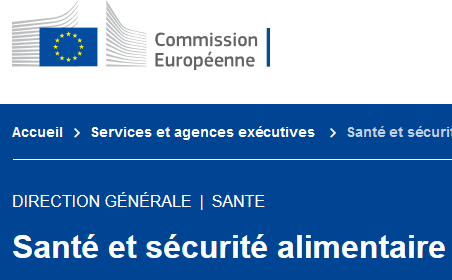Document type : Audit report of the European Commission's DG SANTE
Executive summary: The report describes the outcome of an audit in France from 17 to 21 June 2019. The objective of the audit was to evaluate the suitability and effectiveness of the measures in place to prevent tail biting and to avoid routine tail docking of pigs.
The report concludes that the French authorities and the pig sector (and others) have developed an Action Plan which contains some of the main elements that are required to improve farm rearing conditions. However, at this point, only very few tangible actions have been taken to improve compliance with the provisions of the Pig Directive and to reduce tail biting and avoid tail docking of pigs, which is still carried out routinely in the country. The high incidence of tail biting injuries in docked pigs reported in a study in two slaughterhouses indicates an urgent need for improvement of rearing conditions in the pig sector. This is underpinned by a high percentage of non-compliances with regard to basic legal requirements found by official controls.
The competent authority, together with the sector, have agreed compliance criteria and guidance for most of the legislative requirements related to risk factors for tail biting and are working on finalising compliance criteria for the remainder before the end of summer 2019.
However, the plan lacks any threshold to take the next steps of transitioning to rearing pigs with intact tails and the deadlines set for bringing the sector into compliance with the requirements on the prohibition of routine tail docking are too long (2022 to 2024). There is no robust framework for ensuring that farmers will put in place improvement measures where required or any guidance for the inspectors' assessment of those measures.
The pig sector is fully aware of the national Action Plan and has actively engaged in its development and implementation. It has also made proposals for Union funding to improve farm conditions beyond minimum legal requirements, for mandatory animal welfare training for farmers, and has set up a network to record, compare and share best practice from trials of rearing pigs with intact tails.
Official controls have not yet started to enforce compliance criteria for legislative requirements related to risks for tail biting, though this is planned for 2020 once guidance is revised. However, official controls in the main pig producing regions have focussed since 2017 on raising basic standards related to the provision of light, water and enrichment materials and have taken enforcement action to rectify these non-compliances. Inspection reports indicate that often these requirements were not being provided at all. The authorities are taking measures to ensure that non-compliances relating to these basic provisions are followed up and enforced consistently and effectively throughout the whole country.
The report contains recommendations to the French authorities to address the shortcomings identified.






